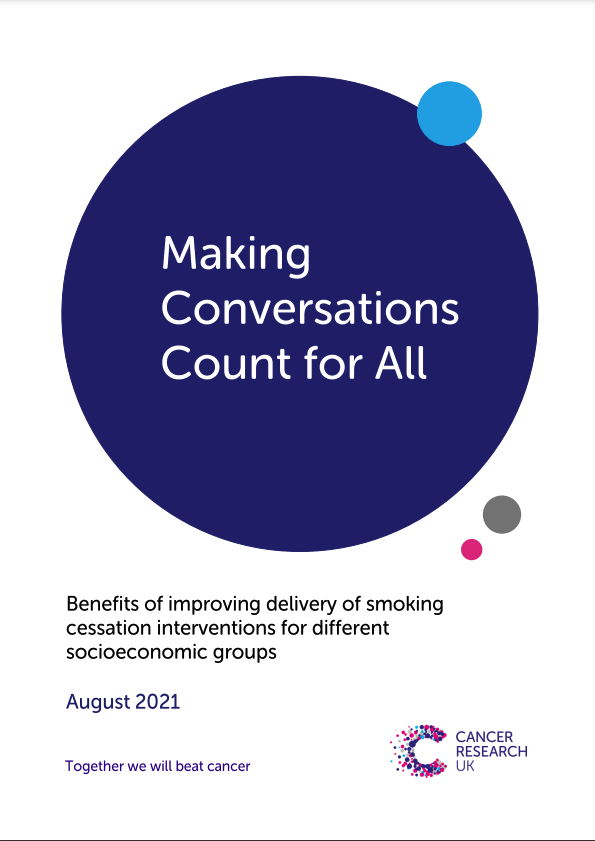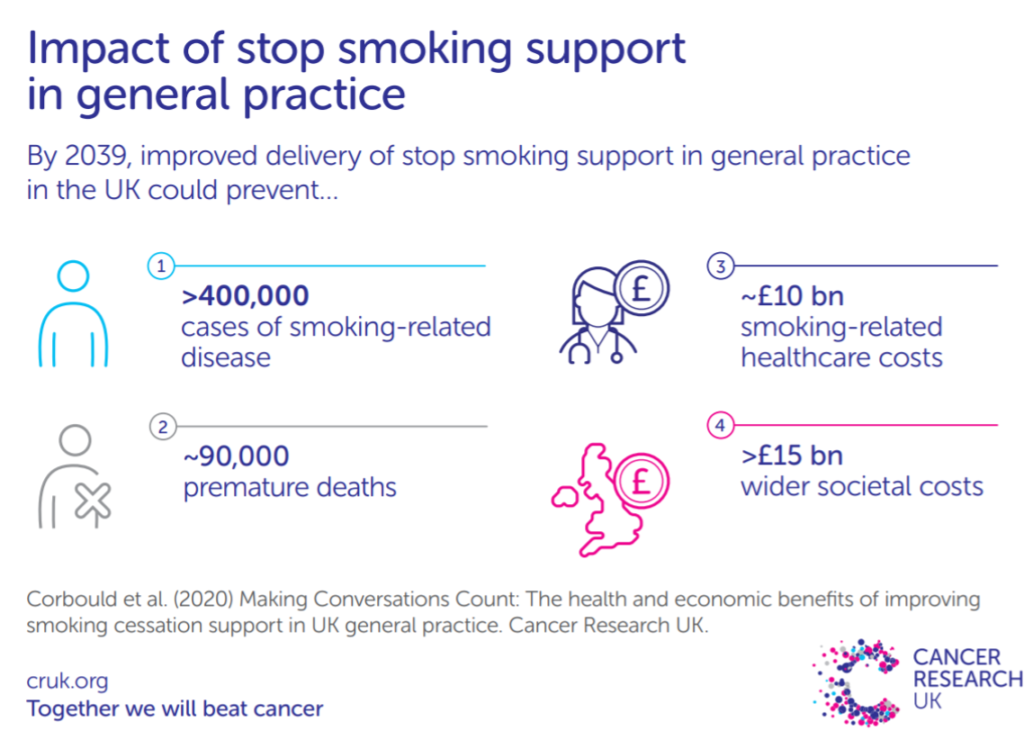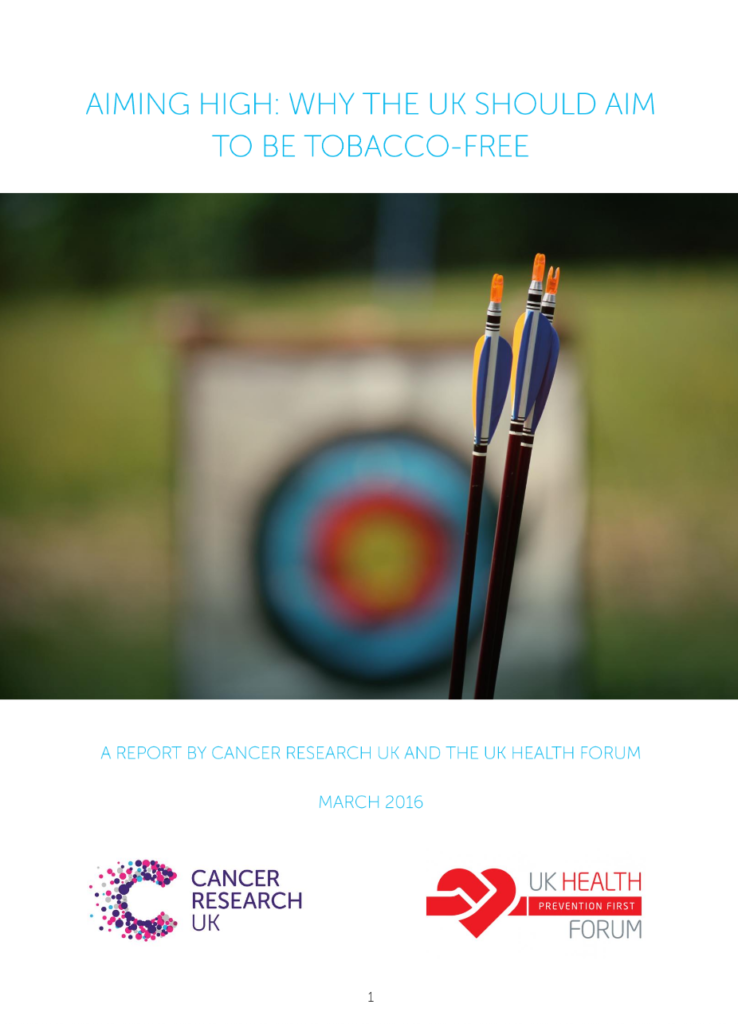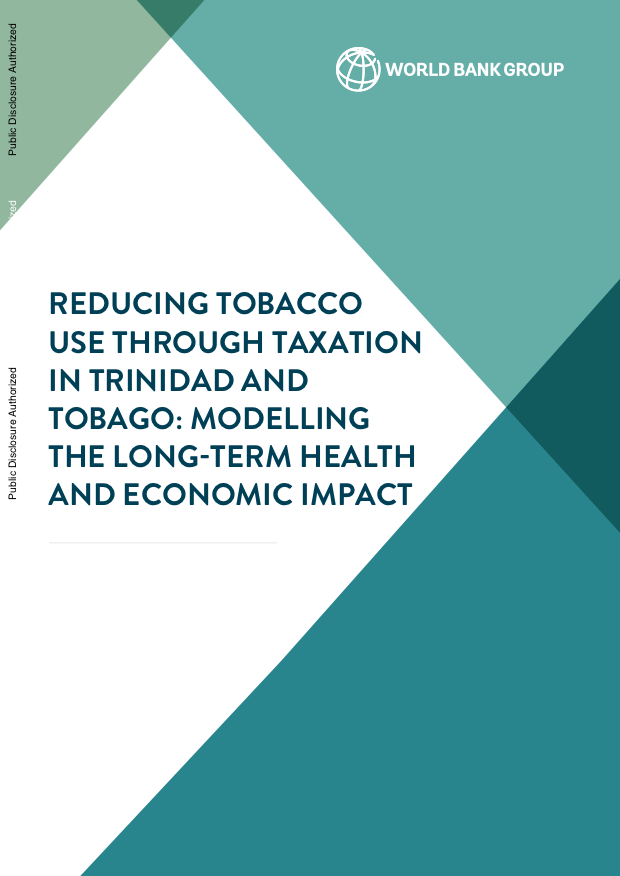
Making Conversations Count for All: Benefits of improving delivery of smoking cessation interventions for different socioeconomic groups.
This study builds on the previous 2020 report by looking at the impact of improving the delivery of three advice-based interventions on different socioeconomic groups, compared with current policy, between 2019-2039. By focusing on socioeconomic status, this study explores one component of deprivation to assess the impact of improving the delivery of these interventions on smoking related health inequalities and associated economic costs in the UK.

Making Conversations Count: The health and economic benefits of improving smoking cessation support
This study conducted with Cancer Research UK aimed to quantify the health and economic benefits of GPs routinely delivering stop smoking support to patients during consultations in the UK. Using a microsimulation model over the period 2019 to 2039, a current practice 'baseline' scenario was compared to three opt-out smoking cessation intervention scenarios.

Aiming High: Why the UK should aim to be tobacco-free
Smoking is still the biggest preventable cause of cancer in the UK, and the biggest cause of premature mortality and health inequalities. This study used a state of the art simulation model to measure dynamic changes in smoking prevalence in the UK over time by age, gender, sex and socio-economic status.

Inequalities in smoking and obesity in Europe predicted to 2050
This study projected educational inequalities in obesity and smoking prevalence to 2050 based on past obesity and smoking trends by education level. The conclusion was that widening educational inequalities in obesity and smoking prevalence are expected in several European countries if current trends in obesity and smoking prevalence are unaltered. This will impact on inequalities in morbidity and mortality of associated diseases such as diabetes, coronary heart disease and chronic obstructive pulmonary disease.

Reducing Tobacco Use Through Taxation in Trinidad and Tobago : Modelling the Long Term Health and Economic Impact
In this World Bank report, our microsimulation model predicted the health and economic impacts of increasing tobacco tax in Trinidad and Tobago. Tobacco is a major contributor to the rise in Non-Communicable Diseases (NCDs) and is often linked to the increase in cardiovascular and respiratory diseases and various forms of cancer. This study quantifies the impact of increasing tobacco tax in Trinidad and Tobago on the future burden of smoking-related diseases.